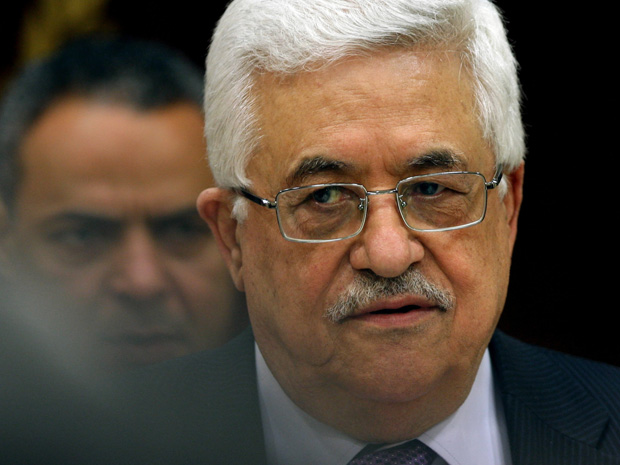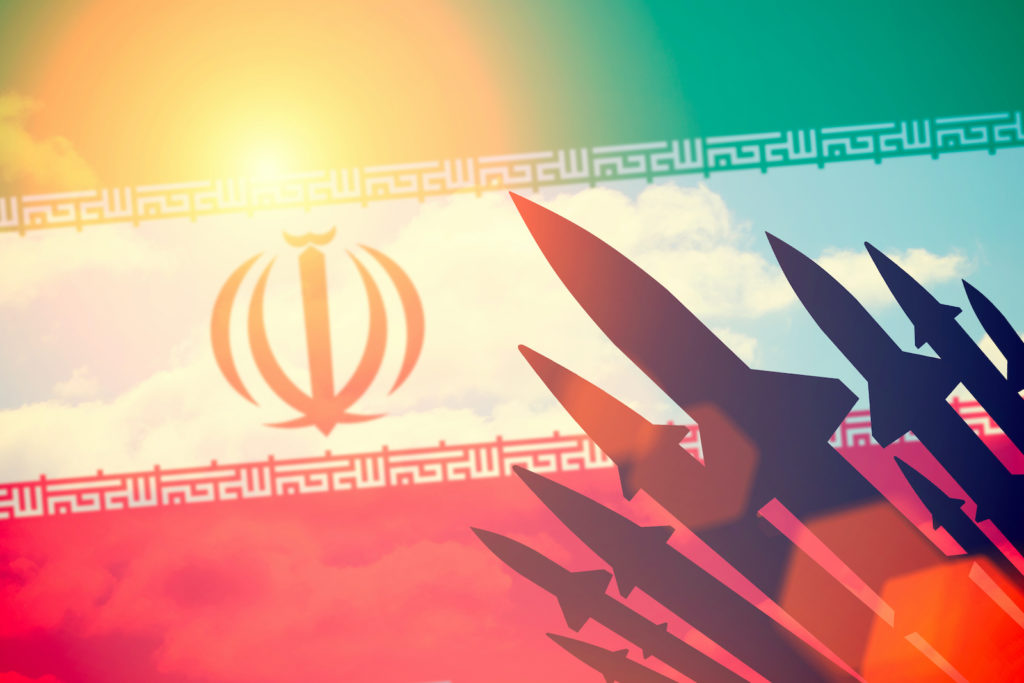UPDATES
Mixed Palestinian reactions to Abbas refugee concession
Nov 5, 2012 | Ahron Shapiro

Palestinian debate has been touched off by comments Palestinian President Mahmoud Abbas made on Thursday appearing to accept concessions on the Palestinian “right of return” to pre-1949 Israel.
“I visited Safed before once. But I want to see Safed. It’s my right to see it, but not to live there,” Abbas said during an interview with Israel’s Channel Two television, which was conducted in English.
“Palestine now for me is the ’67 borders, with East Jerusalem as its capital. This is now and forever… This is Palestine for me. I am [a] refugee, but I am living in Ramallah… I believe that [the] West Bank and Gaza is Palestine,” said Abbas, “and the other parts (are) Israel,” he added.
Abbas had come under widespread criticism for the comments, especially from diaspora Palestinians and Hamas in Gaza, whose leaders organised protests and issued a statement calling upon Abbas to resign.
“Someone like Abbas who makes concessions on the right of return should stop representing the Palestinian people and leading them,” read a statement by Hamas.
However, Abbas’ advisors, Nimr Hammad said to the Palestinian Authority news agency WAFA on Saturday that Abbas was only speaking pragmatically about what the reality of a future two-state solution would look like:
“What was said is what is going to happen when the state of Palestine is established alongside Israel,” said Hammad, “and therefore the president never mentioned the word giving up the right of return.”
Hammad said the issue of refugees will be discussed along with all final status issues, including settlements, Jerusalem, borders, and water.
In Israel, Abbas’ comments received praise from many left-leaning Israeli officials including President Shimon Peres, former Prime Minister Ehud Barak and Foreign Minister Ehud Olmert and Tzipi Livni from Kadima, who confirmed the comments were in line with what Abbas had said in private during peace talks.
(As you may recall, the negotiations between Abbas and the Olmert government which included talks over the right of return, was a major part of the Palestine Papers kerfuffle of 2011.)
Israeli Prime Minister Binyamin Netanyahu expressed a more sceptical attitude, suggesting that Abbas’ statements should be taken with a grain of salt until he is prepared to sit down and negotiate.
“I watched President Abbas’s interview over the weekend. I have heard that he has already managed to go back on his remarks,” the prime minister said.
“This only proves the importance of direct negotiations without preconditions.
Generally, I can say that if Abu Mazen [Abbas] is really serious and intends to advance peace, as far as I am concerned, we can sit together immediately. Jerusalem and Ramallah are only seven minutes apart; I am ready to start negotiations today,” Netanyahu said.
Foreign Minister Avigdor Lieberman had harsher criticism for the Palestinian leader, saying that Abbas’ comments were aimed at influencing the Israeli elections.
“Abbas is interfering, to the benefit of the Left, [Labor chairwoman] Shelly Yacimovich and [Meretz chairwoman] Zehava Gal-On, who represent Palestinian interests in Israel,” Liberman told Army Radio.
“Let’s compare what he said just two months ago to the UN General Assembly, or last year to that same body. Or what he says in Arabic and not in English,” the foreign minister said.
Whether aimed at influencing the Israeli elections or blunting Israeli opposition to the PA’s planned upgrading of status to “non-member state” observer status at in the United Nations General Assembly later this month, Abbas spokesman Nabil Abu Rudeina appeared to confirm the suspicions of Israeli sceptics that Abbas’ comments were nothing more than a public relations exercise.
“The right of return is among the issues that are still pending in the negotiations with Israel,” he said in a statement. “A television interview does not mean negotiations and the aim of the interview was to influence Israeli opinion.”
In an analysis on Sunday, the Jerusalem Post‘s Palestinian Affair reporter Khaled Abu Toameh, reflected on Abu Rudeina’s comment:
“In other words, the spokesman is telling Palestinians and Arabs that Abbas is telling Israelis what they like to hear – namely that Palestinian refugees would not return to their former homes inside Israel.”
Abu Toameh added that well-meaning Israelis who have applauded Abbas’ may be unintentionally hurting Abbas’ image among Palestinians, who have already brandished him a “collaborator”, “traitor” and “sell-out”.
Israeli leaders and politicians who rushed to welcome Abbas’ remarks are probably unaware that they have caused him even more damage among Palestinians and Arabs.
Indeed, a popular image circulating around pro-Palestinian social media in recent days was a split image of Abbas’s face with that of Lord Balfour, along with the dates of the Balfour Declaration and Abbas’ interview – the insinuation being that, by stepping away from the belief that Palestinian return to their pre-1949 homes is a “right”, Abbas has effectively become an enabler of the Zionist cause, no less than Lord Balfour.
In what was seen as a walkback, Abbas clarified his words on Sunday, saying that he was not conceding the “right of return” at all, and that his views about not returning Safed was a personal one.
Some Palestinian academics, however, said Abbas’ broke new ground simply by saying that he would not have a right to live where he was born.
“This is the first time a Palestinian official said ‘I have no right’ to live in my original home,” Nashat Aqtash, a professor of communications at Bir Zeit University told The Media Line. “He should have said ‘something is preventing me’ from living there.”
Setting aside Abbas’ choice of words, a number of Palestinian advisors and analysts essentially agreed with Abbas’ advisor Hammad that Abbas was actually only confirming the reality of the two-state formula that the Palestine Liberation Organisation had agreed to in the 1993 Oslo Accords. They noted that Hamas itself had agreed to accept a future two-states (albeit as an interim step towards the elimination of Israel.)
“This is within the limits of the agreement signed by the PLO so I don’t think Abbas did anything wrong,” Saleh Abdul-Jawad, a professor of political science at Birzeit University told The Media Line. “I don’t think he crossed the red line.”
However, at the vehemently anti-Israel Electronic Intifada website, Ali Abunimah – who rejects the Oslo Accords – used the same argument to advance a very different agenda, namely to undermine the claim of the PA and the PLO to represent Palestinian refugees.
“Abbas’ words demonstrably represent long-standing Palestinian Authority and PLO policy of giving up refugee rights,” he wrote, and concluded, “In his attempt to ‘clarify,’ Abbas has, it seems, only confirmed his implacable hostility to Palestinian refugees and their rights.”
Abbas’ current controversy puts in the spotlight once again the difficult and unavoidable question – how can Abbas or any other Palestinian leader claim to have the mandate of the entire Palestinian people for a two-state peace outcome that would, by definition, require all but a token number of Palestinians to give up their hopes to settle in pre-1948 Israel?
Ahron Shapiro
Tags: Israel











